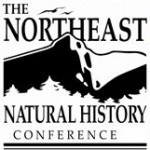
Clifford Phaneuf Center groundbreaking at Forest Park, photo by John Suchocki, The Republican, from photos.masslive.com.
Historical Perspectives of Urban Environmental Education
In 1970, on the tails of the environmental movement, the city of Springfield, MA created an environmental education program named ECOS (Environmental Center for Our Schools). We are seeking an undergraduate research assistant who is interested in working with over 50 years of historical records concerning the creation and evolution of this program. The assistant will help digitize the collection, write narratives that describe the documents, and create keywords for files so that they are searchable through an online database. In addition, the assistant will have the opportunity to develop an independent research project using these documents. The position lasts from April-June (but dates are flexible). For more information, contact Evan at ekuras@umass.edu.



